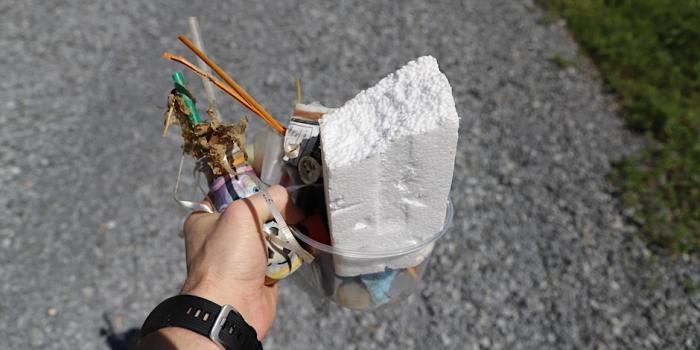While President Trump has his hands full lining up support from House Republicans for his overthrow of Obamacare, Senate Democrats have taken a clear stand against his nominee for the Supreme Court, Judge Neil Gorsuch, raising the stakes for his confirmation.
On Thursday, after three days of listening to his “lack of candor” at the Senate Judiciary Committee hearings, Senate Minority Leader Charles Schumer (D-NY) said his party plans to filibuster Gorsuch, which means that the conservative Colorado jurist will likely have to hurdle the 60-vote threshold to take his seat on the High Court. Right now Democrats are in the minority with only 48 Senators, leaving the Republicans with 52.
“After careful deliberation, I have concluded that I cannot support Judge Neil Gorsuch’s nomination to the Supreme Court,” said Schumer. “He will have to earn 60 votes for confirmation.
“To my Republican friends who think that if Judge Gorsuch fails to reach 60 votes we ought to change the rules, I say: if this nominee cannot earn 60 votes, a bar met by each of President Obama’s nominees and President Bush’s last two nominees, the answer isn’t to change the rules—it’s to change the nominee,” said Schumer, who laid out the reasons why he’ll oppose the nomination and urge his colleagues to do the same.
“His career and judicial record suggests not a neutral legal mind but instead someone with a deep-seated conservative ideology,” said Schumer. “He was groomed by the Federalist Society and has not shown one inch of difference between his views and theirs. And finally, he is someone who almost instinctively favors the powerful over the weak, corporations over working Americans. There could not be a worse time for someone with those instincts.”
He blasted the 10th Circuit judge for not having “an ounce of courage” to defend the judiciary branch against President Trump’s repeated attacks. “Instead, he just tells us that he’s demoralized, disheartened.”
Asked about his judicial philosophy, Schumer said Gorsuch uttered “banalities and platitudes. We did not get any real answers to any real questions about what he thinks about the law and why.”
From Roe v. Wade guaranteeing a woman’s right to an abortion to the segregation-busting Brown v. Board of Education, Gorsuch’s refusal to answer whether he agreed with the Supreme Court decisions in those seminal cases convinced Schumer to oppose his nomination.
“Instead of an umpire calling balls and strikes in baseball,” Schumer said, “what we really saw was an expert—a well-trained expert—in dodgeball.”
Schumer took particular aim at Trump’s selection process, criticizing the president for simply picking someone off a list prepared by the ultra-conservative Heritage Foundation and the Federalist Society and “groomed by billionaire conservatives.” Schumer said Gorsuch’s background gave him little confidence that once on the Supreme Court the jurist would care to curtail the “dark, secret, undisclosed money,” released by the Citizens United decision in 2010, and now being spent by the millions on television ads to drum up support for his confirmation.
“To say he is neutral in his views is belied by his history since his college days and by his own judicial record,” said Schumer.
Then Schumer brought up a very sore point for Democrats: Judge Merrick Garland, President Obama’s nominee to fill the seat vacated by Justice Antonin Scalia’s death last winter, who was rebuffed by Senate Republicans. The nation’s highest court has been operating with only eight judges ever since.
“We all know that my friends across the aisle held this Supreme Court seat open for over a year in hopes that they would have the opportunity to install someone hand-picked by the Heritage Foundation and the Federalist Society to advance the goal of big-money interests entrenching their power in the courts,” said Schumer. “They don’t even mind that this nomination is moving forward under the cloud of an FBI investigation of the president’s campaign.”
He noted that President Obama was under no investigation when he nominated Judge Garland. “It is unseemly and wrong to be moving so fast on a lifetime appointment in such circumstances,” Schumer said.
His objection was preceded weeks ago by New York’s junior U.S. Senator, Kirsten Gillibrand, a fellow Democrat, who announced in the beginning of February that she would not vote for Gorsuch and supported the 60-vote threshold.
“The Supreme Court is supposed to be the ultimate arbiter of justice for our citizens,” said Gillibrand in a statement. “Unfortunately, Judge Gorsuch has proven to have a judicial philosophy outside of the mainstream and time and again has subjugated individual rights to those of corporations. I fundamentally disagree with his ruling that a boss should be able to make family planning decisions for an employee and that corporations are people. I plan to stand up for individuals over corporations and oppose his nomination, and I will insist that his nomination meet a traditional 60-vote threshold.”
As Democrats, both on Capitol Hill and around the country, have angrily pointed out, the Republican Senate Majority Leader Mitch McConnell (R-Ky.) never even bothered to bring Garland’s nomination to a vote, let alone have him appear before the Senate Judiciary Committee. Additionally, just prior to the November election, some Republicans suggested that they would refuse to vote for a Hillary Clinton Supreme Court nominee had she won.
“The Republicans’ refusal to allow Merrick Garland to get even a hearing to fill this seat was nothing short of a crime against democracy, a twisting of democratic norms beyond all recognition,” said Paul Waldman, a senior writer at The American Prospect, in a recent column for the Washington Post. “Garland should be in this seat, and Democrats should go as far as they possibly can to avoid giving even a shred of validation to the way Republicans stole it.”
And so Schumer has thrown down the gauntlet for Gorsuch and his supporters to cross.































